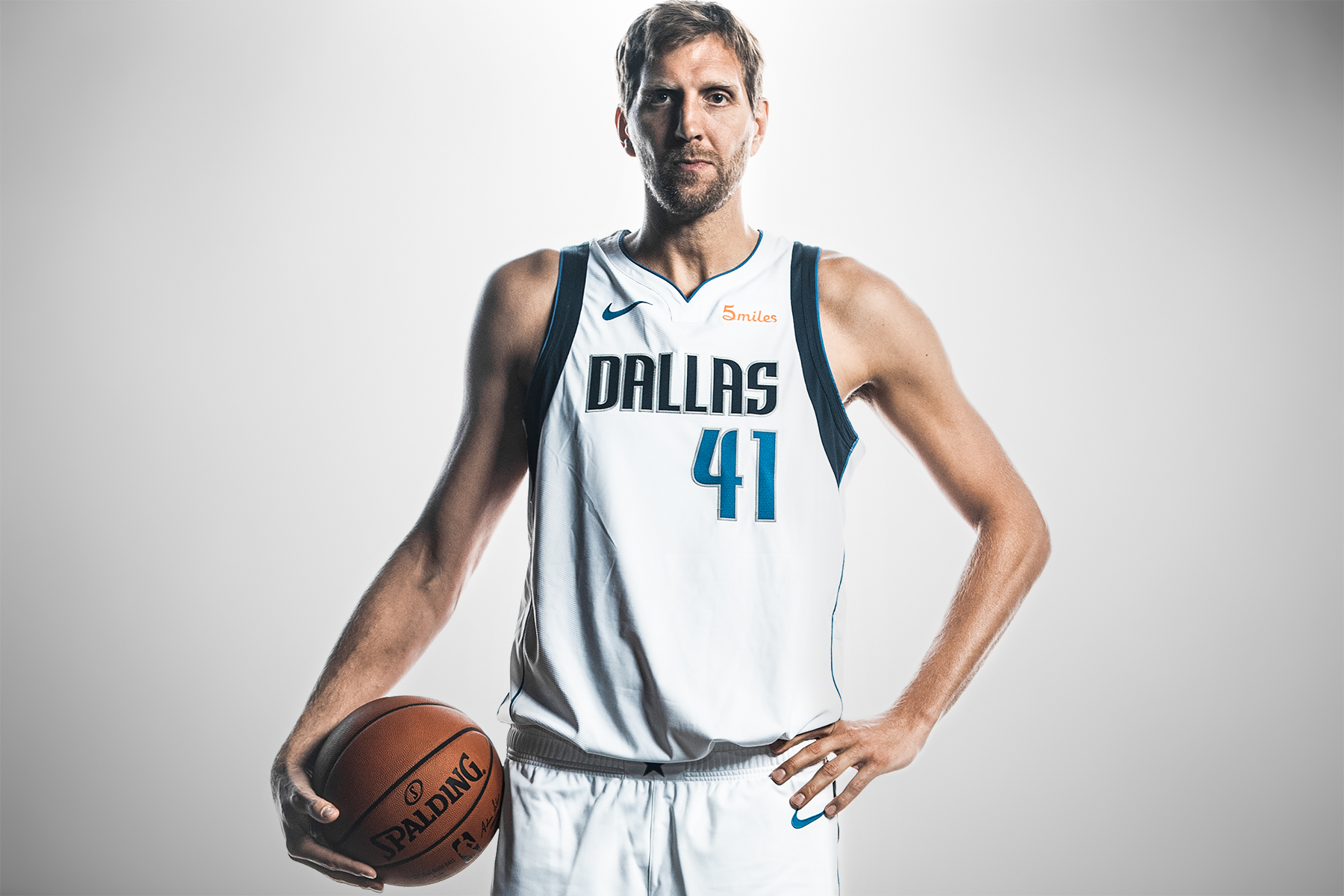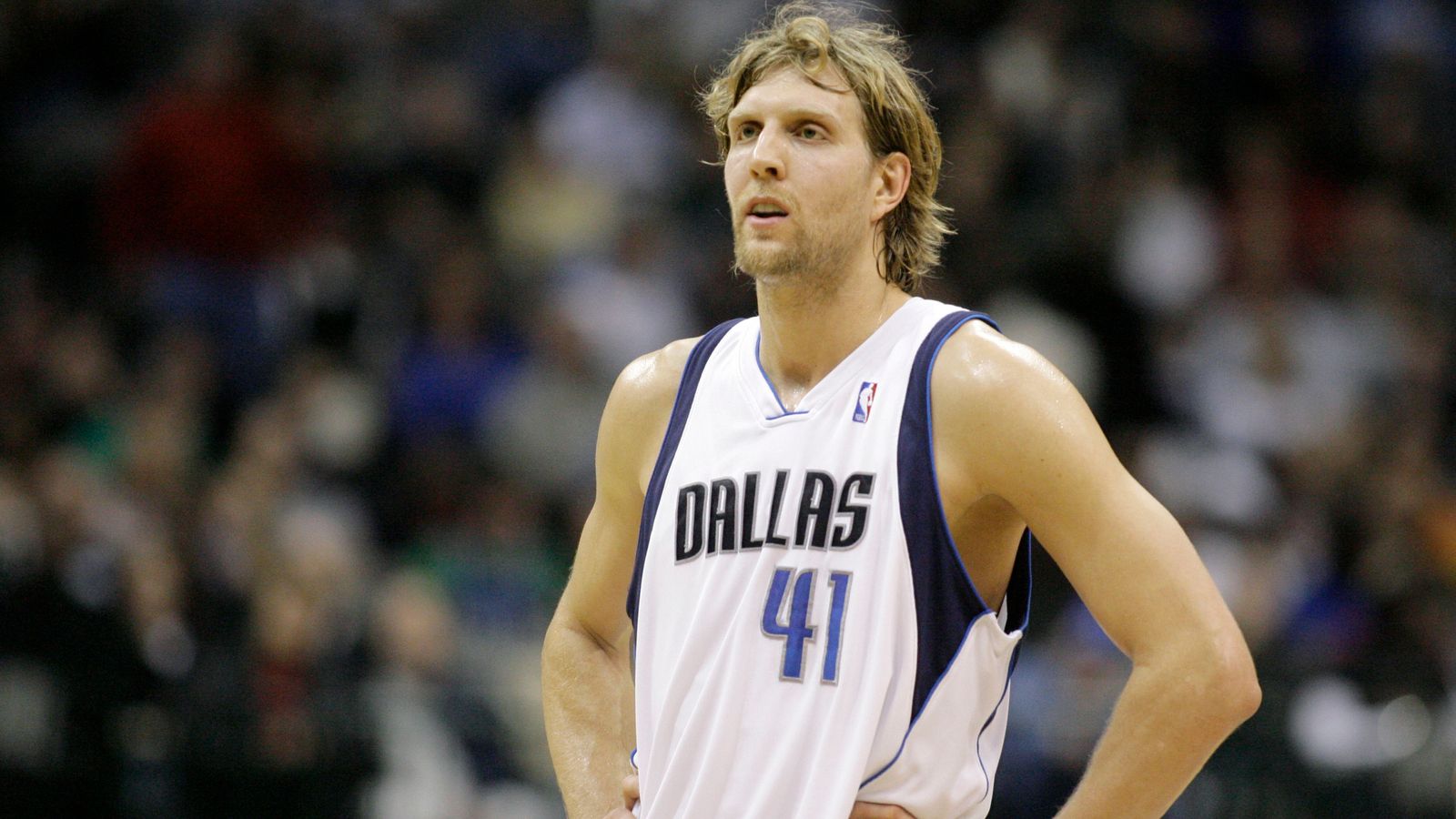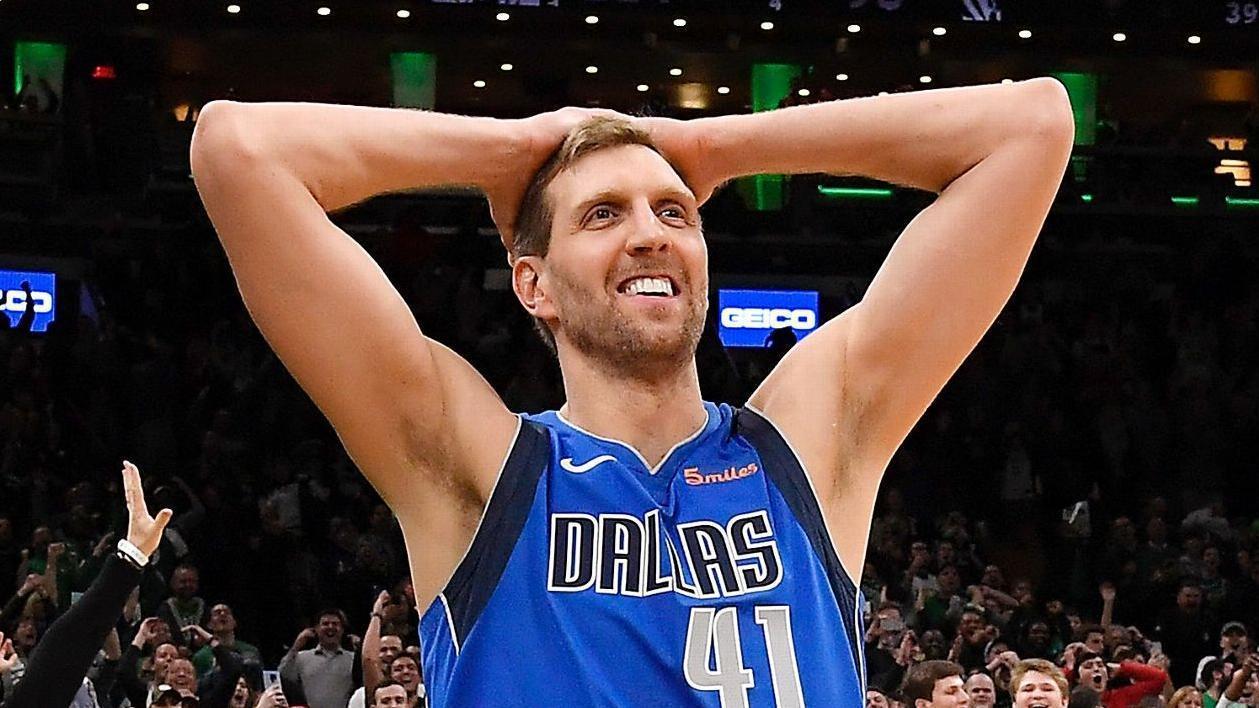Dirk Nowitzki (Part 2)
Dirk Nowitzki (Part 2)

Expected to be selected as the seventh pick in the 1998 NBA draft, Nowitzki opted to bypass college offers and make the leap directly to the NBA as a prep-to-pro prospect. Despite passing on collegiate opportunities, Nowitzki entered the draft as one of the most promising international talents. Ultimately, the Milwaukee Bucks drafted him with the ninth overall pick, later trading him to the Dallas Mavericks in a multi-team transaction that also brought future star Steve Nash to Dallas. Nowitzki and Nash quickly forged a strong friendship, laying the groundwork for their future success together.
Upon joining the Mavericks, Nowitzki became only the fourth German player in NBA history, following in the footsteps of notable predecessors such as Uwe Blab, Christian Welp, and the seasoned veteran Detlef Schrempf. Notably, Nowitzki concluded his tenure with DJK Würzburg as the sole player from the club to transition to the NBA, marking a significant milestone in his career.
In Dallas, Nowitzki joined a franchise that had endured a playoff drought since 1990. Led by shooting guard Michael Finley and supported by towering center Shawn Bradley and scoring leader Cedric Ceballos, the Mavericks sought to revitalize their fortunes. However, the onset of the 1998–99 NBA lockout delayed the start of the season, casting uncertainty over the league's schedule. During this hiatus, Nowitzki briefly returned to DJK Würzburg before a compromise was reached, resulting in a shortened 50-game NBA season.
When the season finally commenced, Nowitzki encountered challenges adjusting to the rigors of NBA competition. Playing under coach Don Nelson as a power forward, he grappled with the physicality and athleticism of his opponents, leading to defensive struggles and criticisms from fans. Despite these obstacles, Nowitzki persevered, reflecting on the daunting transition from Second Bundesliga to the NBA as akin to jumping out of an airplane without knowing if the parachute would deploy. The Mavericks endured a difficult season, winning only 19 of their 50 games and failing to qualify for the playoffs.
On January 4, 2000, the Mavericks underwent a significant transition when team owner Ross Perot Jr. sold the franchise to Internet billionaire Mark Cuban for $280 million. With Cuban at the helm, the Mavericks experienced a revitalization marked by substantial investments and a renewed focus on success. Cuban's hands-on approach included attending every game courtside, injecting funds into the franchise, such as purchasing a $46 million Boeing 757 for team travel, and driving revenue growth to surpass $100 million. Nowitzki praised Cuban's leadership, attributing the creation of an optimal environment for success to Cuban's initiatives, allowing the team to concentrate solely on winning.
Under the guidance of coach Nelson, coupled with Cuban's enhancements and Nowitzki's own development, Nowitzki made significant strides in his sophomore season. Averaging 17.5 points, 6.5 rebounds, and 2.5 assists per game in 35.8 minutes, Nowitzki showcased his growing prowess on the court. His notable improvement earned him recognition as the runner-up in the NBA Most Improved Player Award, narrowly trailing behind Jalen Rose. Additionally, Nowitzki earned a spot on the NBA All-Star Sophomore squad, highlighting his emergence as a rising star in the league.
Despite Nowitzki's individual achievements, the Mavericks fell short of playoff contention, concluding the season with a modest 40–42 record. While Nowitzki continued to elevate his game, the team's overall performance did not meet expectations, resulting in a postseason absence.
In the 2000–01 NBA season, Nowitzki continued to elevate his performance, averaging 21.8 points, 9.2 rebounds, and 2.1 assists per game. His growing influence on the team was evident as he joined team captain Finley as one of only two Mavericks to play and start in all 82 games. Throughout the season, Nowitzki showcased his scoring prowess with 10 games where he scored at least 30 points. This remarkable consistency earned him the distinction of being the first Maverick ever to be voted into the All-NBA squads, securing a spot on the Third Team. Additionally, the emergence of his close friend Nash as a valuable point guard, combined with Finley's increased scoring output, led pundits to dub this trio as the "Big Three" of the Mavericks.
With a regular-season record of 53–29, the Mavericks clinched a playoff berth for the first time since 1990. As the fifth seed, they faced off against the Utah Jazz, led by the dynamic duo of point guard John Stockton and power forward Karl Malone. The Mavericks emerged victorious from the series in five games, setting the stage for a showdown with their Texas rivals, the San Antonio Spurs. However, the Mavericks faced a formidable challenge against the Spurs, losing the first three games of the series. Despite Nowitzki's valiant efforts, which included battling through illness and injury, the Mavericks ultimately fell short, succumbing to a deciding 105–87 loss in Game 5.
Prior to the 2001–02 NBA season, Nowitzki solidified his commitment to the Mavericks by signing a lucrative six-year, $90 million contract extension, establishing him as one of the highest-paid German athletes, trailing only Formula One champion Michael Schumacher. Building on his previous success, Nowitzki continued to elevate his game, averaging an impressive 23.4 points, 9.9 rebounds, and 2.4 assists per game. His outstanding performance earned him a spot on the All-NBA Second Team and a selection to his first All-Star Game.
With a regular-season record of 57–25, the Mavericks entered the playoffs with high hopes. They began their postseason campaign by sweeping Kevin Garnett and the Minnesota Timberwolves in the first round, with Nowitzki showcasing his scoring prowess by averaging an impressive 33.3 points per game. However, their journey hit a roadblock in the second round when they faced off against the Sacramento Kings, led by rival power forward Chris Webber. After splitting the first two games, the Kings implemented a strategic defensive adjustment, assigning Hedo Türkoğlu to closely guard Nowitzki and employing double teams whenever he attempted to post up Türkoğlu.
Despite Nowitzki's efforts, particularly in Game 3 where he struggled against Türkoğlu's tight defense and committed several turnovers, the Mavericks faltered, ultimately losing the series in five games. Despite the disappointment of the playoff exit, Nowitzki received recognition for his outstanding season, being awarded the title of "European Basketballer of the Year" by the Gazzetta dello Sport, garnering 104 votes and surpassing his competitors in the rankings.
References
- "Nowitzki highest-scoring player born outside U.S." NBA.com. Archived from the original on August 10, 2017. Retrieved April 11, 2019.
- ^ Volpe, Conor. "Ranking the Best Seasons of Dirk Nowitzki's Career". Bleacher Report. Archived from the original on January 26, 2019. Retrieved January 26, 2019.
- ^ "Dirk Nowitzki to get Naismith Legacy Award". ESPN. October 20, 2012. Archived from the original on July 23, 2015. Retrieved February 6, 2014.
- ^ "All Time Leaders". NBA Stats. Archived from the original on January 2, 2021. Retrieved January 26, 2019.
- a b c Career points leaders Archived February 25, 2011, at the Wayback Machine Basketball-Reference.com – NBA & ABA Leaders and Records for Points – retrieved October 31, 2019
- a b Sauer; Reisner (2004). Dirk Nowitzki – german wunderkind. CoPress Munich. pp. 12–20. ISBN 3-7679-0872-7.
- ^ Sauer, 30
- ^ Sauer, 14–17
- a b Sauer, 20–22
- ^ Sauer, 22–24
- ^ Sauer, 25
- ^ Sauer, 26
- ^ Sauer, 30–31
- ^ Sauer, 33–38
- ^ Sauer, 38–45



















































